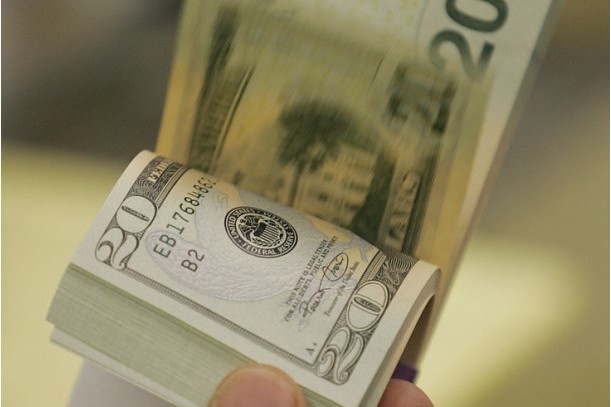Latest News
Nigeria’s $4 billion Eurobonds success unlike to improve FX supply – CardinalStone

News Highlight
The country’s low stock of foreign currency-denominated debts masks the impact of the current exchange rate shocks and indicates a low risk of debt distress.
The $4 billion raised through Eurobonds by Nigeria on Tuesday is unlikely to improve market supply of foreign exchange by the Central Bank of Nigeria (CBN). This is according to a research note published today by CardinalStone Partners Limited, a Lagos-based full-service investment banking and financial services firm.
In a statement on Tuesday, the Debt Management Office (DMO) announced that after an intensive two days of virtual meetings with investors across the globe, Nigeria has raised the sum of USD4 billion through Eurobonds. The issuance was spread across three tenors, $1.25 billion on the 7-year instrument; $1.5 billion on the 12-year; and $1.25 billion on the 30-year, with respective yields at 6.125%, 7.7375% and 8.250%.
The order book peaked at USD12.2 billion, making the Federal Government of Nigeria (FGN) to raise USD1 billion more than the USD3 billion it initially announced to raise, DMO said.
“This was unsurprising to us, given the cumulative effect of the high global stock of negative-yielding debt, elevated global liquidity, and Nigeria's moderate-to-low-risk of debt distress,” CardinalStone said in its research note – $4 billion Eurobond: Implications for the Currency and Fiscal Position. It, however, said that the CBN is unlikely to ramp up intervention to pre-pandemic levels in the near term.
According to the firm, since the start of the year, the FX liquidity crunch has intensified due to low intervention by the CBN and weak portfolio inflows. CBN's current monthly intervention in the FX market is likely below $1.8 billion, which is 1.7x slower than the average for Q1'20 (pre-pandemic level). This mainly reflects the impact of OPEC+'s cap on crude oil production and persistent challenges at various oil terminals, which have largely masked pass-through from higher oil prices.
Also, capital importation into the country has plunged, reaching a 22-quarter low of $876 million in Q2'21, compared to $1.2 billion in Q2'20. These factors may have driven down average turnover in the CBN’s I&E Window to $108.7 million in 2021 from $345.0 million in Q1'20.
“Despite the Eurobond issuance, the CBN's body language suggests that it is unlikely to ramp up [FX] intervention sales to pre-pandemic levels in the near term,” CardinalStone wrote. “Our view is premised on the ongoing FX rationing (with the suspension of BDCs sales in July), existing FPI backlogs, and the unrepatriated dividend of foreign equity holders. In any case, the Eurobond liquidity is equivalent to just 1.7 months of intervention sales, assuming CBN's pre-pandemic monthly FX supply of $2.3 billion, all else equal.”
The firm projected that foreign investors’ apathy towards Nigeria may remain, despite the successful Eurobonds issuance, hampering material resurgence of capital inflows to the country. The firm also expects parallel market premium to remain widened. Following the halt in FX sales to the BDCs, the Naira has taken a turn for the worse at the parallel market, trading at a premium of 38% versus 21.2% at the start of the year. This trend will likely persist as corporates and individuals who import items restricted by the CBN will continue to source FX from the black market.
On likely debt distress, CardinalStone said despite the rising debt concerns in Nigeria, the country still maintains a low risk of debt distress due to the low stock of foreign currency-denominated debts, which has masked the impact of exchange rate shocks. Nigeria's total public debt (DMO and non-DMO) is estimated at 34.2% of GDP, lower than most SSA peers - Ghana (76.7% of GDP) and Kenya (66.5% of GDP).
Nonetheless, debt remains a concern, given that it absorbs about 98.0% of federal government revenues and has resulted in materially low fiscal space.
Related News
Latest Blogs
- What Ould Tah’s tenure at BADEA reveals about his AfDB candidacy
- Implementation strategy crucial for the success of 12-4 education policy
- A senator’s suspension threatens the right of representation
- Tinubu’s promising revolution in infrastructure development
- Has Tinubu’s economic reform started working?
Most Popular News
- Artificial intelligence can help to reduce youth unemployment in Africa – ...
- Nigeria records $6.83 billion balance of payments surplus in 2024
- Tariffs stir inflation fears in US but offer targeted industry gains ...
- Tinubu appoints new Board Chair, Group CEO for NNPC Limited
- Soaring civil unrest worries companies and insurers, says Allianz
- CBN net reserve hits $23.1 billion, the highest in three years









